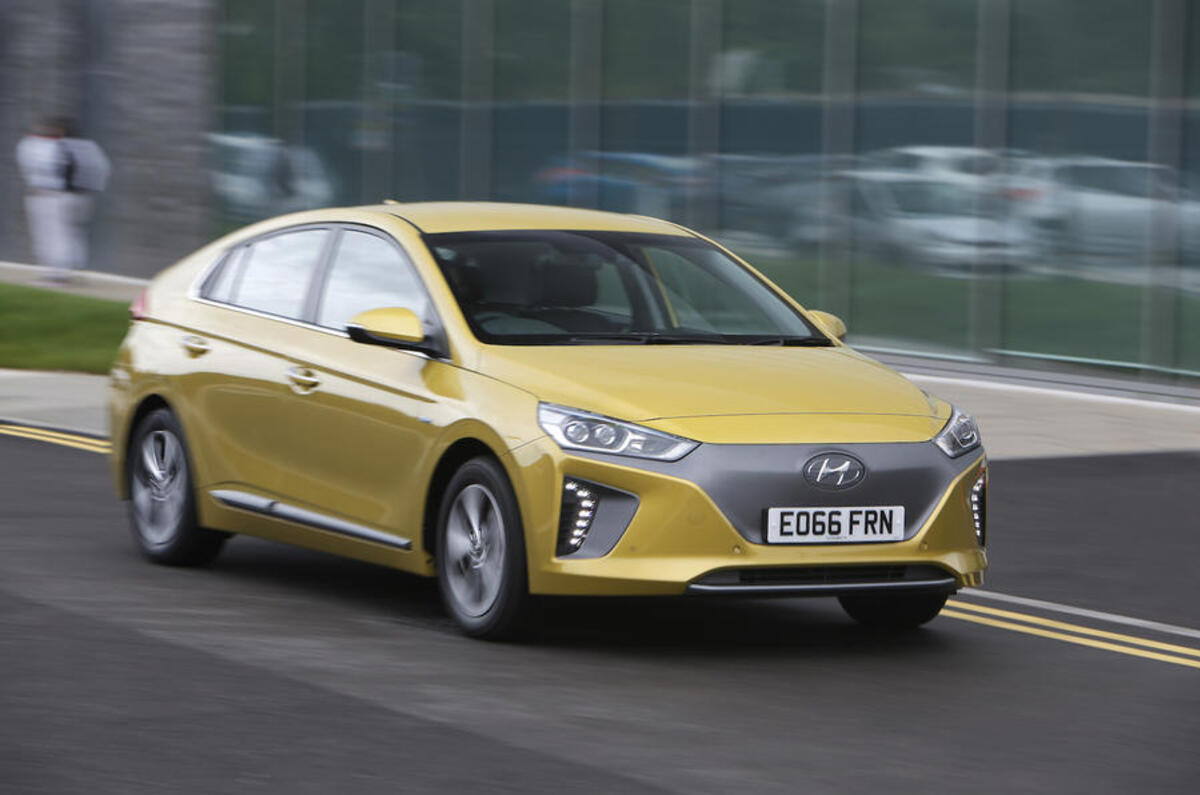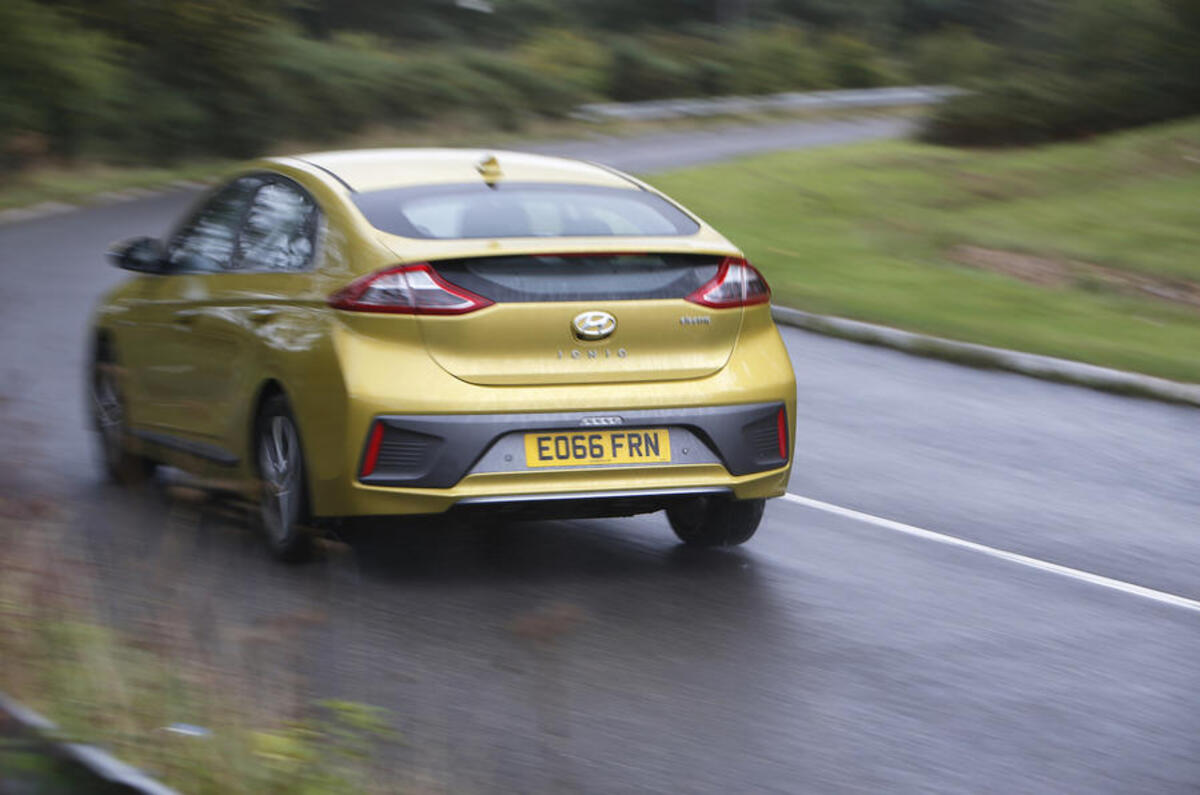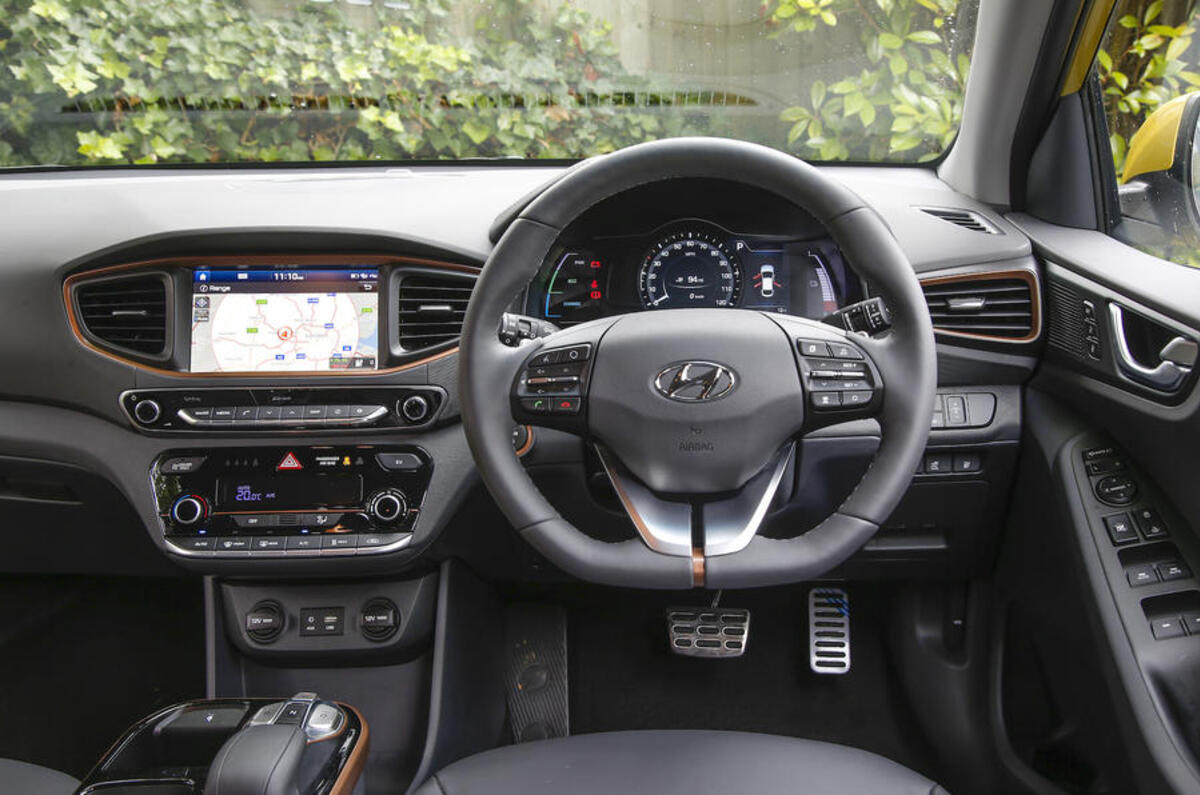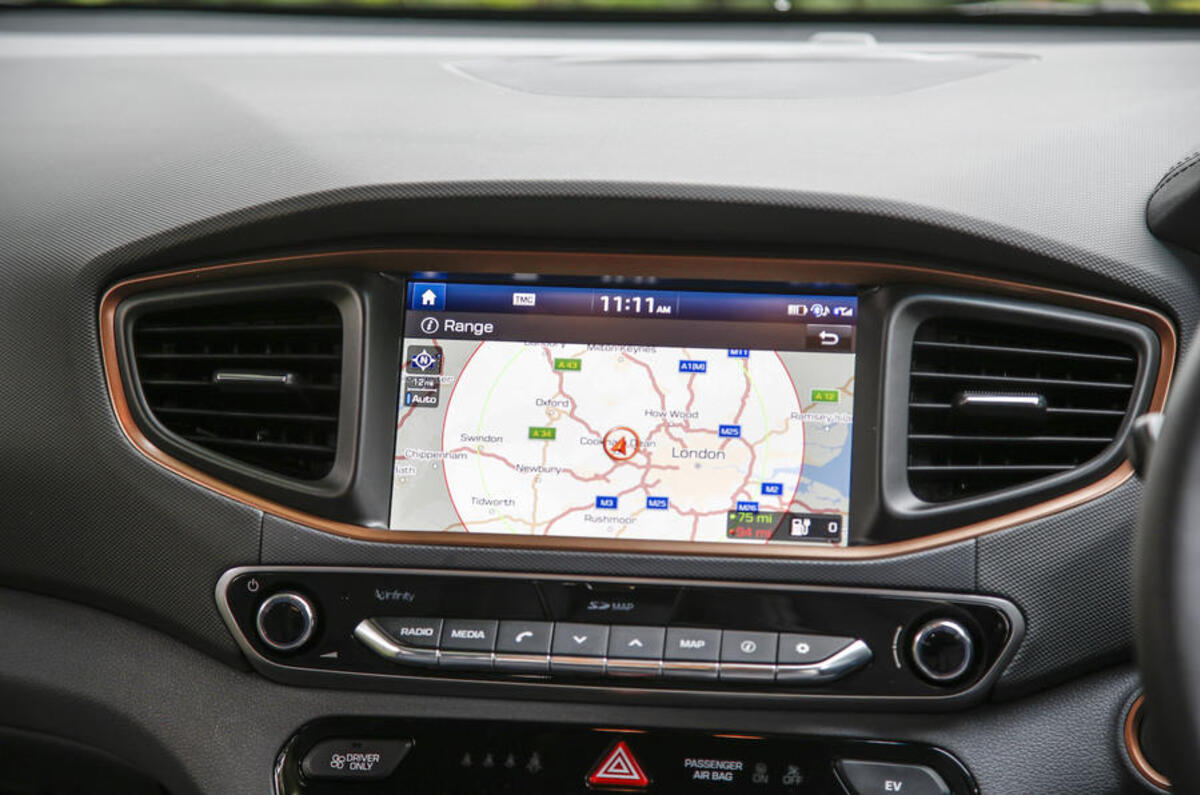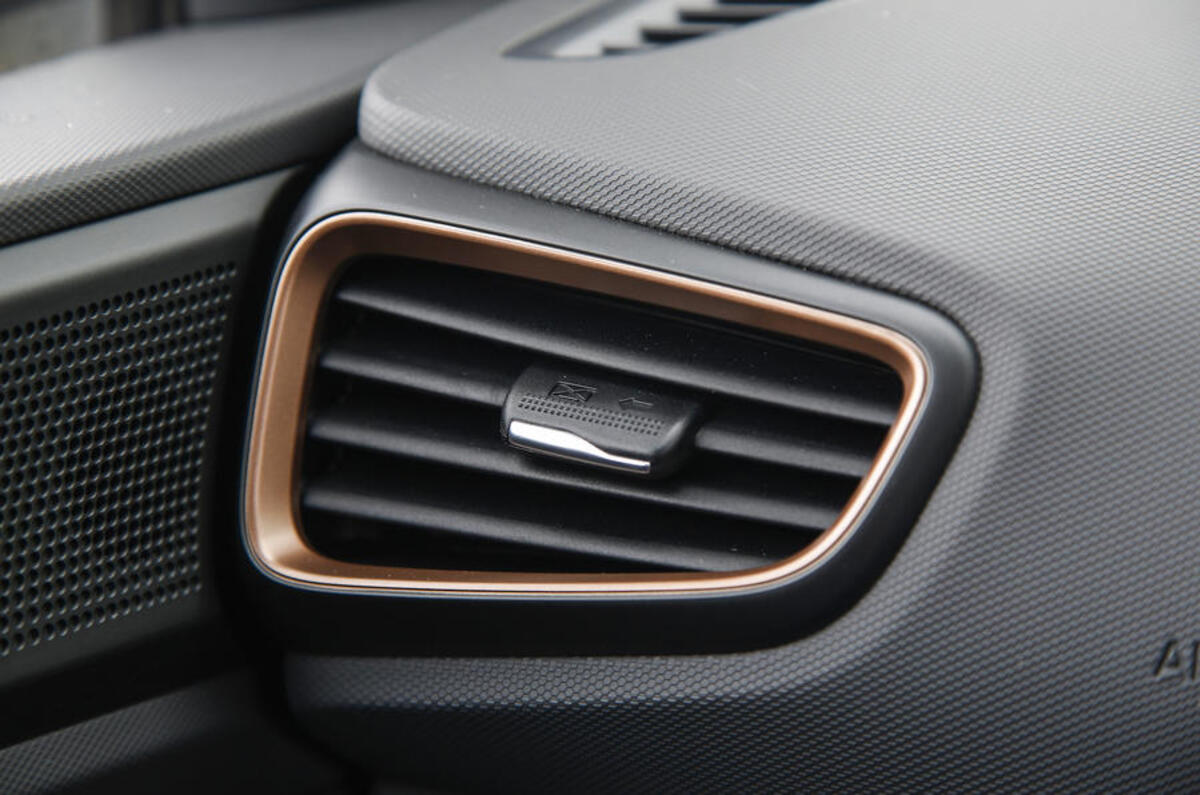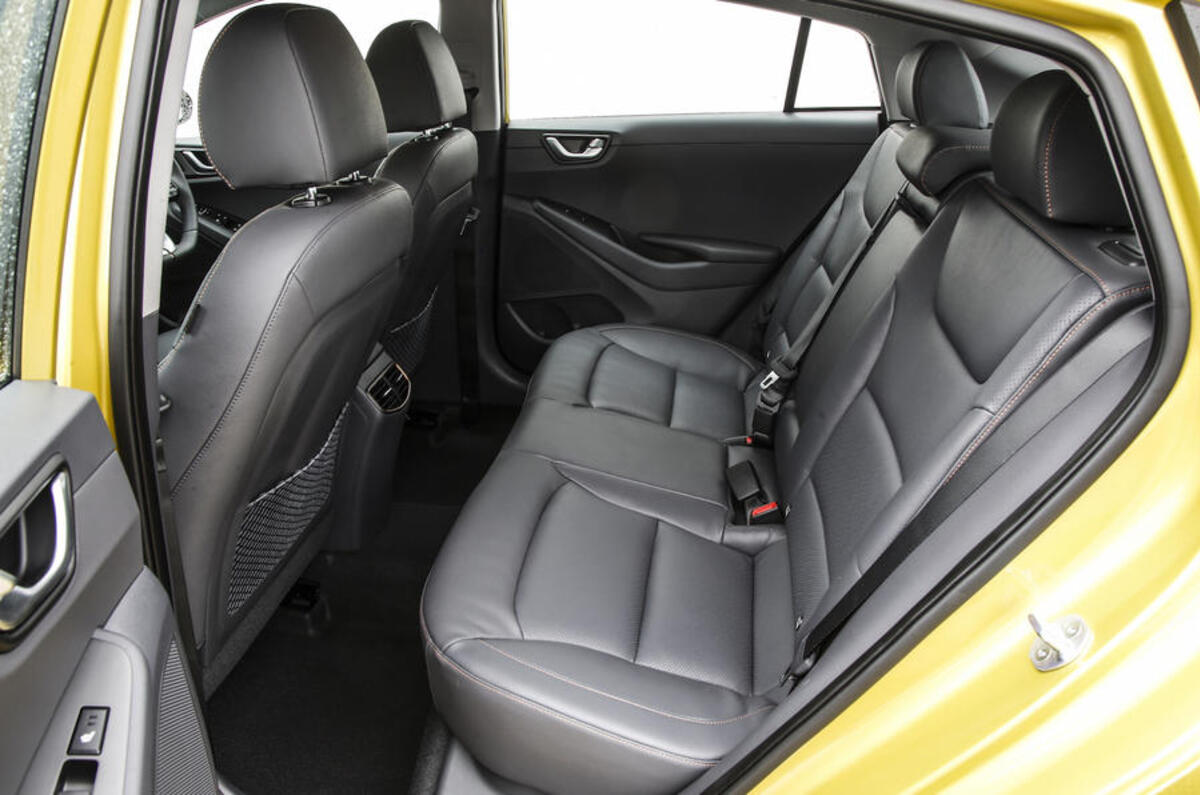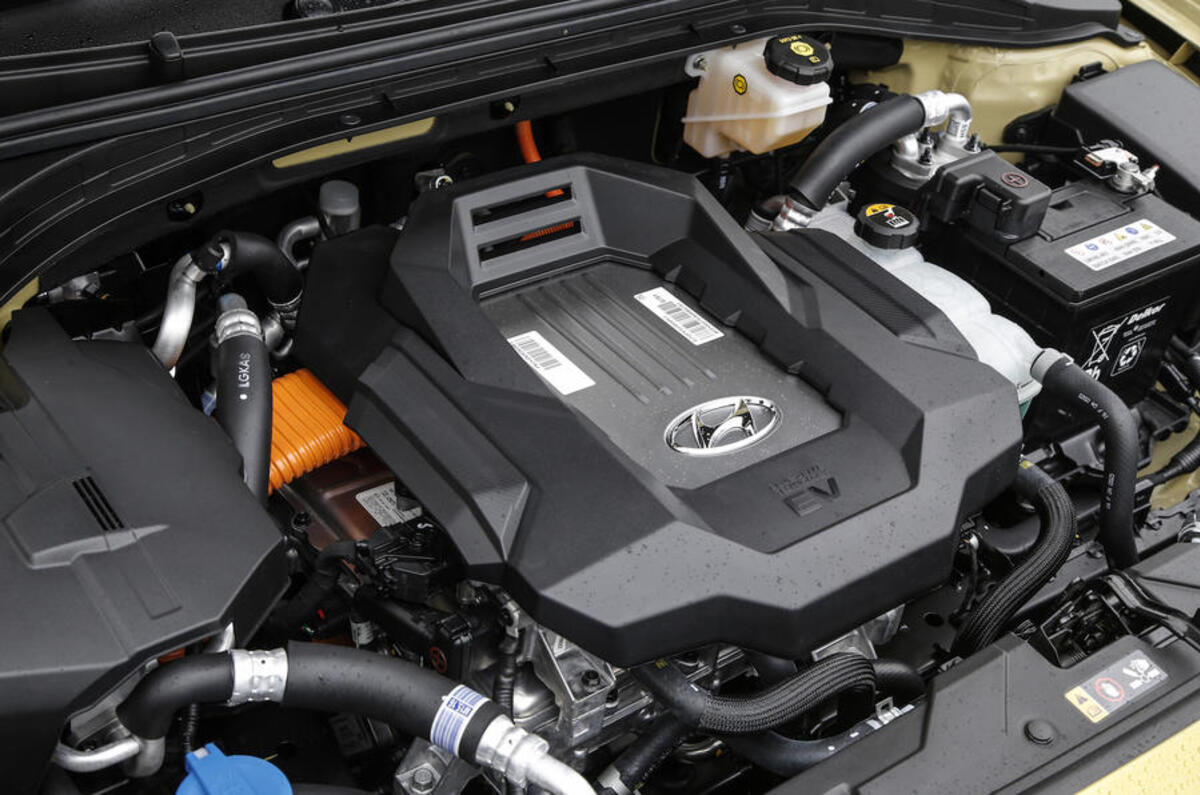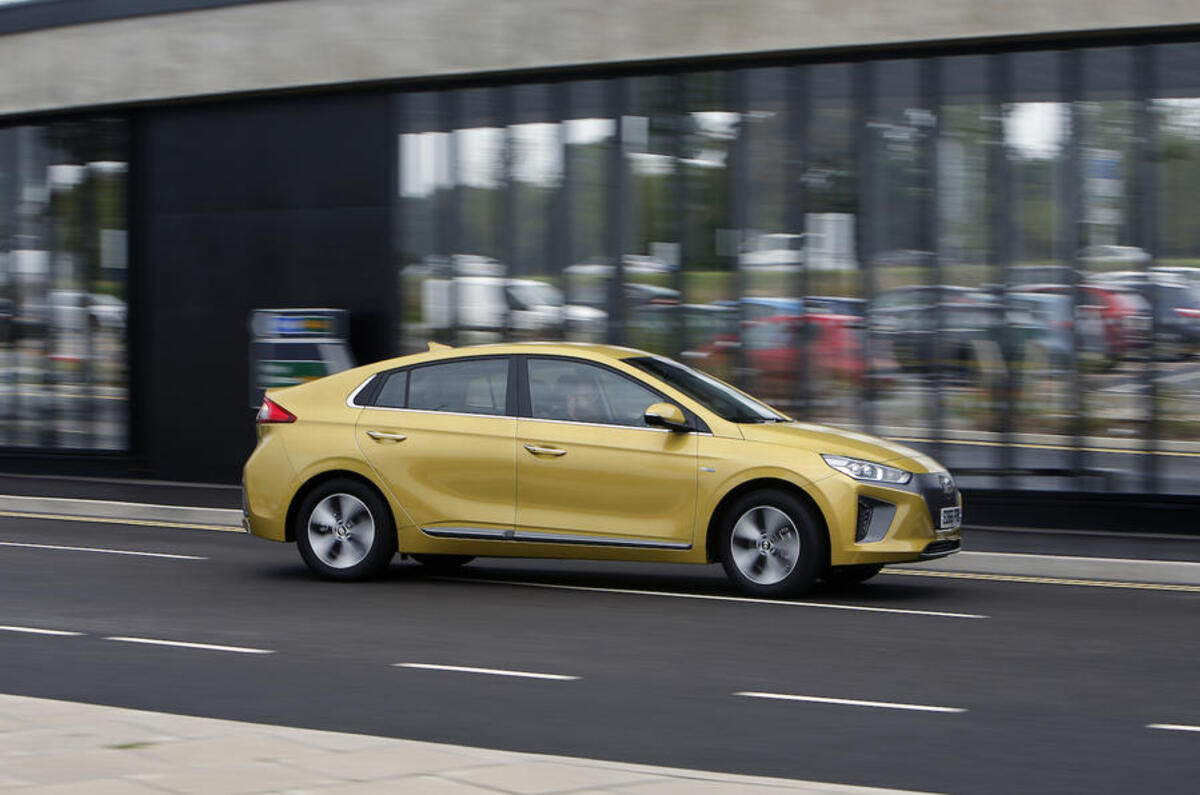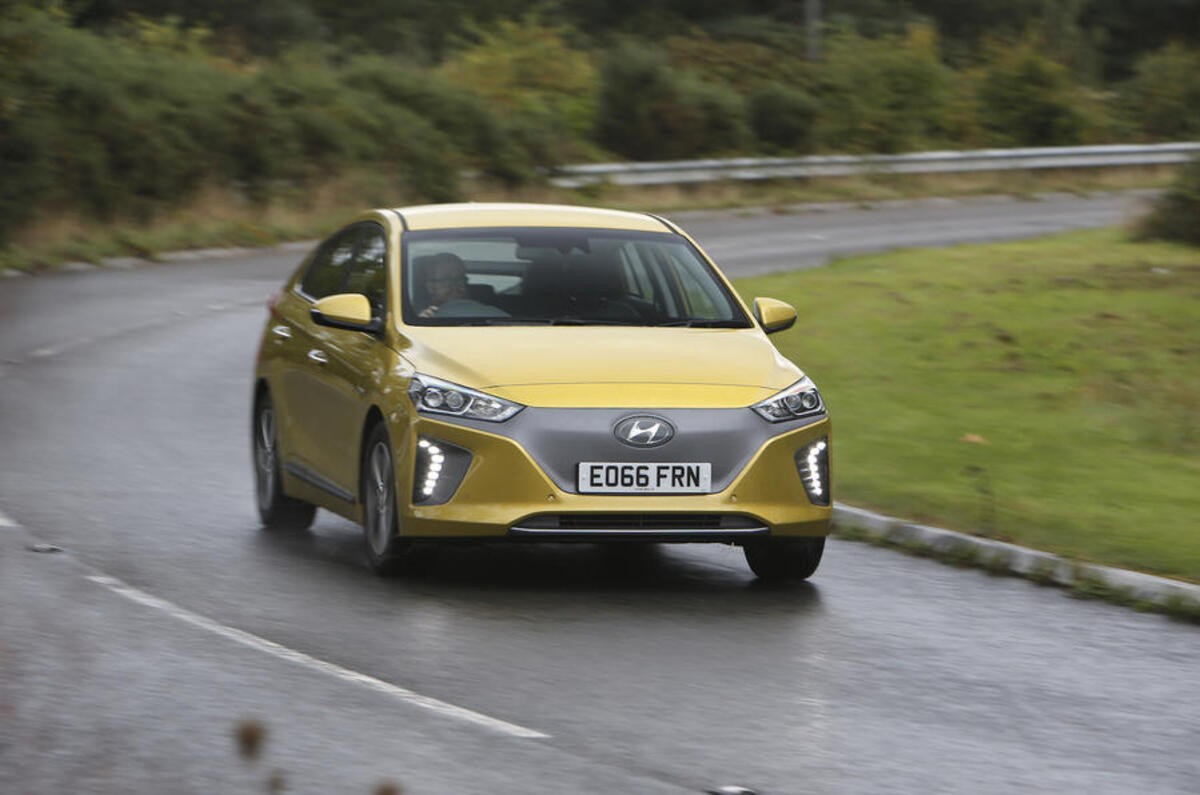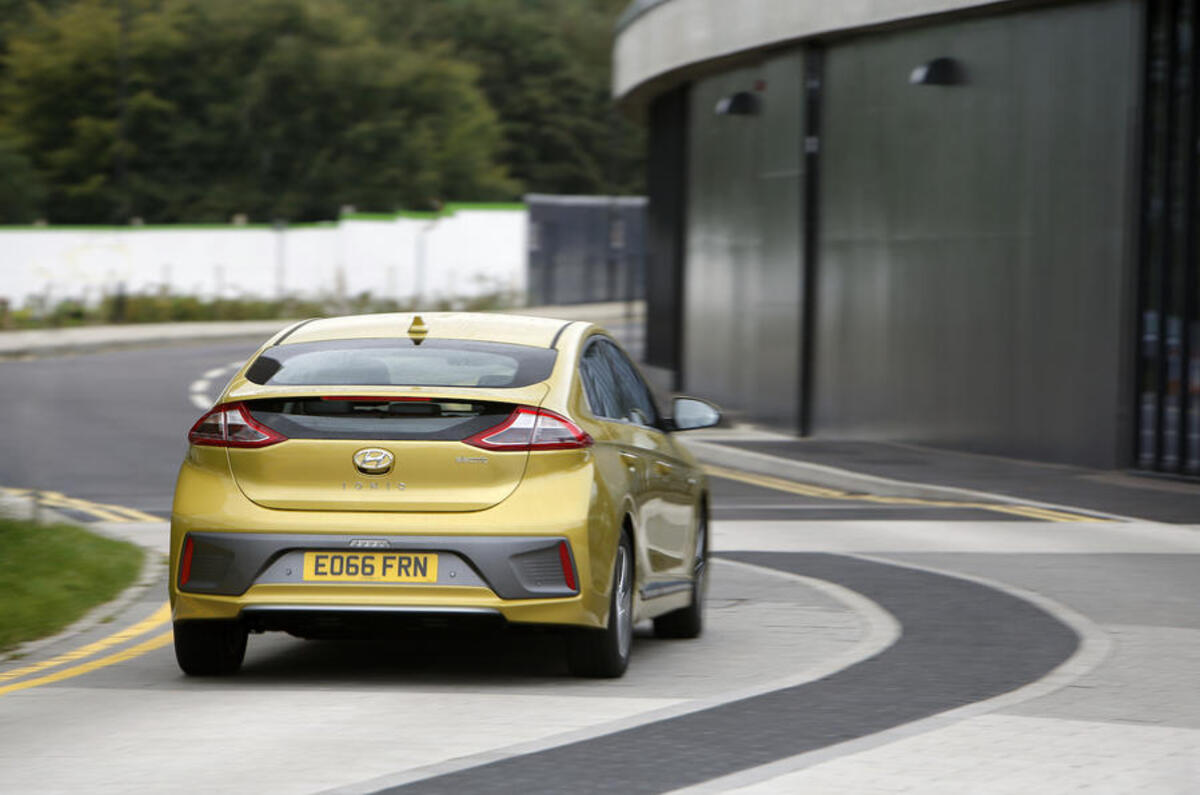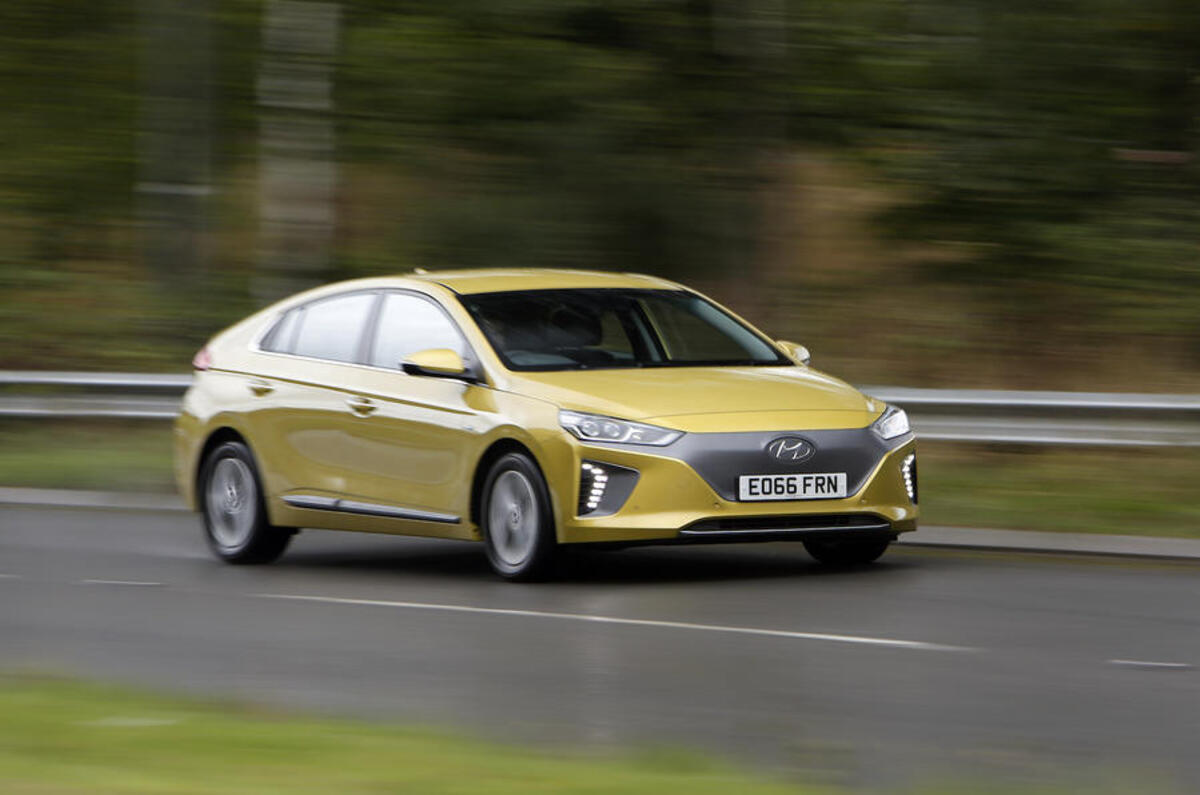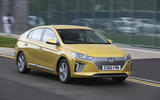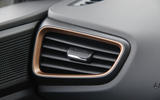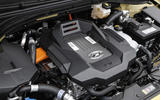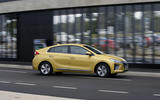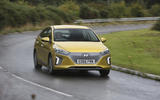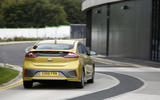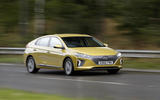Apart from another opportunity to make poor Alanis Morissette-based jokes, this is our chance to drive the all-electric version of the Hyundai Ioniq on UK roads.
If that name looks familiar, that’s because we’ve already sampled the hybrid version. With a plug-in hybrid to follow, the Ioniq is a key part of Hyundai’s plan to have 22 ‘green’ cars in its range by 2020.
Underneath all three versions is the same platform that underpins the Kia Niro. There’s plenty of high-strength steel to help rigidity, along with aluminium panels and other componentry to reduce weight.
Unlike the Niro and the two hybrid Ioniqs, the all-electric version does without independent multi-link rear suspension, despite costing nearly £29,000 before any government grant. There is good reason for the fitment of a torsion beam rear axle, though. As it’s more compact, Hyundai has been able to shoehorn in a larger battery pack without sacrificing too much boot space.
Indeed, the lithium ion cells have enough juice to give the Ioniq a maximum potential range of 174 miles. Like official fuel economy figures, we’d take that number with a pinch of salt. Even so, you’re still left with enough range to make all but the longest commute viable. The question is whether you’d want to spend an hour or two every day in one.


